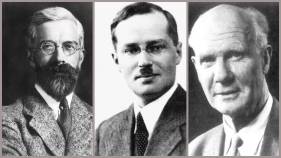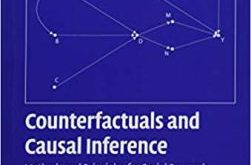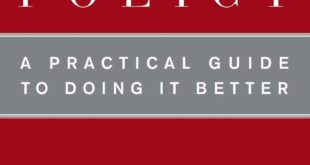Why quasi-experimental evaluations fail Evaluation research tends to be method-driven. Everything needs to be apportioned as an ‘input’ or ‘output’, so that the programme itself becomes a ‘variable’, and the chief research interest in it is to inspect the dosage in order to see that a good proper spoonful has been applied … The quasi-exprimental conception is again deficient. Communities clearly differ. They also have attributes that are not reducible to...
Read More »Design-based vs model-based inferences
Design-based vs model-based inferences Following the introduction of the model-based inferential framework by Fisher and the introduction of the design-based inferential framework by Neyman [and Pearson], survey sampling statisticians began to identify their respective weaknesses. With regard to the model-based framework, sampling statisticians found that conditioning on all stratification and selection/recruitment variables, and allowing for their...
Read More »Are RCTs — really — the best way to establish causality?
Are RCTs — really — the best way to establish causality? The best method is always the one that yields the most convincing and relevant answers in the context at hand. We all have our preferred methods that we think are underused. My own personal favorites are cross-tabulations and graphs that stay close to the data; the hard work lies in deciding what to put into them and how to process the data to learn something that we did not know before, or that...
Read More »Statistical assumptions and racial bias
Statistical assumptions and racial bias Our analysis indicates that existing empirical work in this area is producing a misleading portrait of evidence as to the severity of racial bias in police behavior. Replicating and extending the study of police behavior in New York in Fryer (2019), we show that the consequences of ignoring the selective process that generates police data are severe, leading analysts to dramatically underestimate or conceal entirely...
Read More »The poverty of fictional storytelling in statistics and econometrics
The poverty of fictional storytelling in statistics and econometrics The most expedient population and data generation model to adopt is one in which the population is regarded as a realization of an infinite super population. This setup is the standard perspective in mathematical statistics, in which random variables are assumed to exist with fixed moments for an uncountable and unspecified universe of events … This perspective is tantamount to assuming a...
Read More »Decision making — trustworthiness vs relevance
Decision making — trustworthiness vs relevance The random assignment plus masking are supposed to make it likely that the two groups have the same distribution of causal factors. It is controversial how confident these measures should make us that they do this. This issue bears on the trustworthiness of causal claims backed by RCTs. As we noted, trustworthiness is the central topic of many other guides. But we aim to move beyond that; we concentrate on...
Read More »Evidence-based policy
‘Ideally controlled experiments’ tell us with certainty what causes what effects — but only given the right closures. Making appropriate extrapolations from (ideal, accidental, natural or quasi) experiments to different settings, populations or target systems, is not easy. ‘It works there’ is no evidence for ‘it will work here.’ Causes deduced in an experimental setting still have to show that they come with a transportability warrant to the target population. The causal...
Read More »Modularity — a questionable assumption
Modularity — a questionable assumption Modularity is the mark of a type of independence from context. The same functional relationship between variables will hold in a given component of the contributing mechanisms whether or not there is a change in a different component. The total effect may change when different components contribute, but the operation of the modular mechanism will not be changed nor change them. In situations where the presence or...
Read More »In defense of DAGs
In defense of DAGs .[embedded content]
Read More »Bayesian analysis with SPSS
Bayesian analysis with SPSS .[embedded content] Yours truly has for several years been conducting a doctoral course in statistics for students in educational science where SPSS has been used. Unfortunately, Bayesian analysis has not been available in that program. With version 29 of SPSS, things have changed. So, next year, there will be a new addition to the course!
Read More » Heterodox
Heterodox








